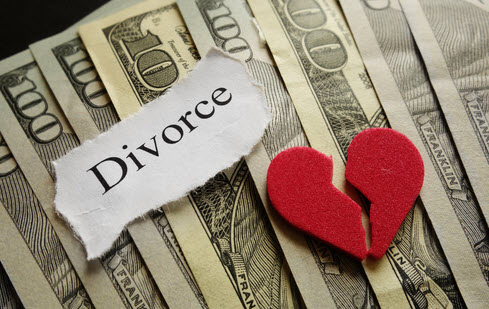5 Bankruptcy Questions For Divorcing Couples

Life deals us all setbacks from time to time, and for families going through a divorce, sometimes the financial challenges just become too much. Many divorces end in bankruptcy, and conversely, many bankruptcies end in divorce. At the Law Offices of Todd K. Mohink, P.A., we help people through some of their darkest and most challenging times, always with the understanding that the law provides hope to those who can navigate the programs available to them. Here are five common questions that divorcing couples often have about bankruptcy.

#1 – How Will Our Debts Get Split Up?
It depends on when the bankruptcy is filed. If you and your spouse have already filed for bankruptcy and decide to get divorced, it may (for the sake of simplicity) be better to finish your bankruptcy case before filing for divorce. In a Chapter 7 bankruptcy, you are seeking a fresh start with a complete discharge of your debts. It’s best to finish this process while married, then proceed with divorce. If, however, you are in the middle of a Chapter 13, you may have years left to complete your discharge. A divorce court can help to apportion responsibilities for the debt, but you will want to speak with a divorce attorney early.
#2 – Can I Discharge Child Support Obligations?
No. Your obligation to support your children is not dischargeable in bankruptcy. Under Title 11 of the U.S. Code (The Bankruptcy Code), child support is considered a domestic support obligation, which cannot be discharged.
#3 – Can I Discharge Alimony?
Usually no. It will depend on what type of bankruptcy case you have and how the language of your divorce decree is worded. If your divorce court order fashions payments to an ex-spouse as a domestic support obligation, then you will not be able to discharge them. In some limited situations, payments may be vague in the order or may sound like property division. If so, there may be limited situations where you could discharge them. However, this is rare.
#4 – What Happens to Personal Injury or Workers’ Compensation Money?
If you are unfortunate enough to be going through a divorce, a bankruptcy, and a personal injury all at the same time, you will need to carefully coordinate between various attorneys handling these matters. But in general, money obtained through personal injury or workers’ compensation is considered part of the bankruptcy estate, just like any income. Once in the estate, the bankruptcy court will determine how much is used to creditors and how much is available for distribution between the parties as part of the divorce.
#5 – Can Just One Person File for Bankruptcy?
Yes. In many cases, if you are wise about planning your divorce and bankruptcy well, you can structure things so that only one person in the marriage must file for bankruptcy. But beware, any attempt to defraud creditors or the government should be avoided at all cost. You cannot get divorced, have one person accept responsibility for all debts, then have that person file for bankruptcy. A bankruptcy trustee will review the court order to ensure there is no obvious attempt to defraud creditors. Still, there are options you can discuss with an attorney.
Call Todd K. Mohink Today
For help planning a complex divorce, call the Law Offices of Todd K. Mohink, P.A. in Maryland today, or have your bankruptcy attorney contact our office to discuss coordinating efforts to help you achieve the best possible outcome.
Resource:
gpo.gov/fdsys/pkg/USCODE-2017-title11/pdf/USCODE-2017-title11-chap1.pdf
Anne Arundel County
Empire Towers
7310 Ritchie Highway, Suite 910
Glen Burnie, MD 21061
Phone: 410-766-0113
Fax: 410-766-0270
Howard County On the grounds of Columbia Mall
30 Corporate Center
10440 Little Patuxent Parkway,
Suite 900
Columbia, MD 21044
Phone: 410-964-0050
